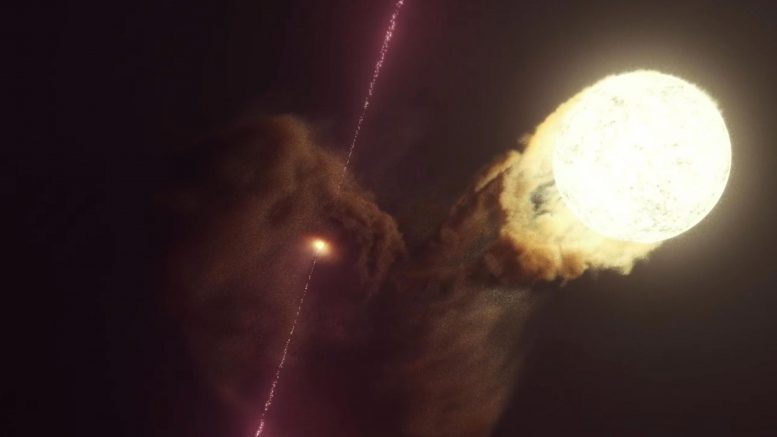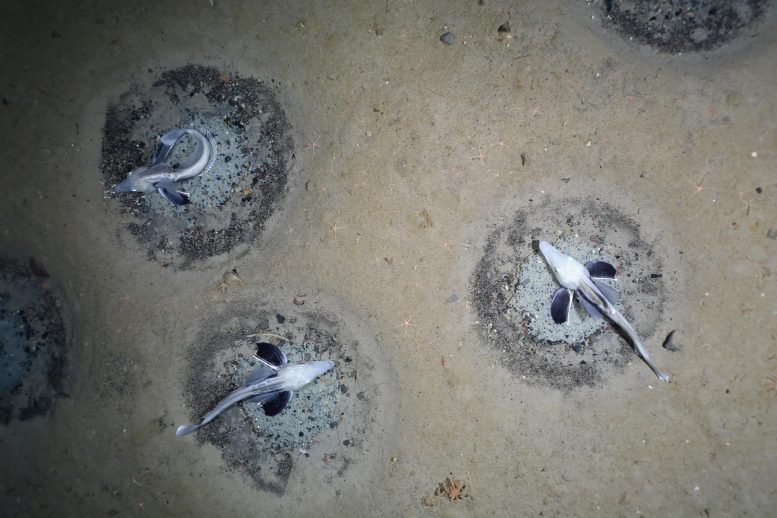
Οι επιστήμονες της Ιατρικής Σχολής Feinberg του Πανεπιστημίου Northwestern ανακάλυψαν ότι η ανεπίλυτη δευτερογενής βακτηριακή πνευμονία είναι η κύρια αιτία θανάτου σε ασθενείς με COVID-19, επηρεάζοντας σχεδόν τους μισούς ασθενείς που χρειάζονται αναπνευστική υποστήριξη. Τα ευρήματά τους, δημοσιεύτηκαν στο Journal of Clinical Investigationδιαψεύδοντας επίσης τη θεωρία ότι ο COVID-19 προκαλεί μια «καταιγίδα κυτοκινών» που οδηγεί στο θάνατο.
Η μηχανική μάθηση δεν βρίσκει στοιχεία καταιγίδας κυτοκινών σε βαρέως πάσχοντες ασθενείς[{” attribute=””>COVID-19.
- No evidence of cytokine storm in critically ill patients with COVID-19
- Nearly half of patients with COVID-19 develop a secondary bacterial pneumonia
- Crucial to find and aggressively treat secondary bacterial pneumonia in ICU patients
Secondary bacterial infection of the lung (pneumonia) was extremely common in patients with COVID-19, affecting almost half the patients who required support from mechanical ventilation. By applying machine learning to medical record data, scientists at Northwestern University Feinberg School of Medicine have found that secondary bacterial pneumonia that does not resolve was a key driver of death in patients with COVID-19, results published in The Journal of Clinical Investigation.
Bacterial infections may even exceed death rates from the viral infection itself, according to the findings. The scientists also found evidence that COVID-19 does not cause a “cytokine storm,” so often believed to cause death.

Benjamin Singer, MD, the Lawrence Hicks Professor of Pulmonary Medicine in the Department of Medicine and a Northwestern Medicine pulmonary and critical care physician. Credit: Northwestern Medicine
“Our study highlights the importance of preventing, looking for, and aggressively treating secondary bacterial pneumonia in critically ill patients with severe pneumonia, including those with COVID-19,” said senior author Benjamin Singer, MD, the Lawrence Hicks Professor of Pulmonary Medicine in the Department of Medicine and a Northwestern Medicine pulmonary and critical care physician.
The investigators found nearly half of patients with COVID-19 develop a secondary ventilator-associated bacterial pneumonia.
“Those who were cured of their secondary pneumonia were likely to live, while those whose pneumonia did not resolve were more likely to die,” Singer said. “Our data suggested that the mortality related to the virus itself is relatively low, but other things that happen during the ICU stay, like secondary bacterial pneumonia, offset that.”
The study findings also negate the cytokine storm theory, said Singer, also a professor of Biochemistry and Molecular Genetics.
“The term ‘cytokine storm’ means an overwhelming inflammation that drives organ failure in your lungs, your kidneys, your brain and other organs,” Singer said. “If that were true, if cytokine storm were underlying the long length of stay we see in patients with COVID-19, we would expect to see frequent transitions to states that are characterized by multi-organ failure. That’s not what we saw.”
The study analyzed 585 patients in the intensive care unit (ICU) at Northwestern Memorial Hospital with severe pneumonia and respiratory failure, 190 of whom had COVID-19. The scientists developed a new machine learning approach called CarpeDiem, which groups similar ICU patient-days into clinical states based on electronic health record data. This novel approach, which is based on the concept of daily rounds by the ICU team, allowed them to ask how complications like bacterial pneumonia impacted the course of the illness.
These patients or their surrogates consented to enroll in the Successful Clinical Response to Pneumonia Therapy (SCRIPT) study, an observational trial to identify new biomarkers and therapies for patients with severe pneumonia. As part of SCRIPT, an expert panel of ICU physicians used state-of-the-art analysis of lung samples collected as part of clinical care to diagnose and adjudicate the outcomes of secondary pneumonia events.
“The application of machine learning and artificial intelligence to clinical data can be used to develop better ways to treat diseases like COVID-19 and to assist ICU physicians managing these patients,” said study co-first author Catherine Gao, MD, an instructor in the Department of Medicine, Division of Pulmonary and Critical Care and a Northwestern Medicine physician.
“The importance of bacterial superinfection of the lung as a contributor to death in patients with COVID-19 has been underappreciated, because most centers have not looked for it or only look at outcomes in terms of presence or absence of bacterial superinfection, not whether treatment is successful or not,” said study co-author Richard Wunderink, MD, who leads the Successful Clinical Response in Pneumonia Therapy Systems Biology Center at Northwestern.
The next step in the research will be to use molecular data from the study samples and integrate it with machine learning approaches to understand why some patients go on to be cured of pneumonia and some don’t. Investigators also want to expand the technique to larger datasets and use the model to make predictions that can be brought back to the bedside to improve the care of critically ill patients.
Reference: “Machine learning links unresolving secondary pneumonia to mortality in patients with severe pneumonia, including COVID-19” by Catherine A. Gao, Nikolay S. Markov, Thomas Stoeger, Anna E. Pawlowski, Mengjia Kang, Prasanth Nannapaneni, Rogan A. Grant, Chiagozie Pickens, James M. Walter, Jacqueline M. Kruser, Luke V. Rasmussen, Daniel Schneider, Justin Starren, Helen K. Donnelly, Alvaro Donayre, Yuan Luo, G.R. Scott Budinger, Richard G. Wunderink, Alexander V. Misharin and Benjamin D. Singer, 27 April 2023, The Journal of Clinical Investigation.
DOI: 10.1172/JCI170682
Other Northwestern authors on the paper include Nikolay Markov; Thomas Stoeger, PhD; Anna Pawlowski; Mengjia Kang, MS; Prasanth Nannapaneni; Rogan Grant; Chiagozie Pickens ’14 MD ’17 GME, assistant professor of Medicine in the Division of Pulmonary and Critical Care; James Walter, MD, assistant professor of Medicine in the Division of Pulmonary and Critical Care; Jacqueline Kruser, MD; Luke Rasmussen, MS; Daniel Schneider, MS; Justin Starren, MD, PhD, chief of Health and Biomedical Informatics in the Department of Preventive Medicine; Helen Donnelly; Alvaro Donayre; Yuan Luo, PhD, director of the Center for Collaborative AI in Healthcare and associate professor of Preventive Medicine; Scott Budinger, MD, chief of Pulmonary and Critical Care in the Department of Medicine; and Alexander Misharin, MD, PhD, associate professor of Medicine in the Division of Pulmonary and Critical Care.
The study was supported by the Simpson Querrey Lung Institute for Translational Sciences and grant U19AI135964 from the National Institute of Allergy and Infectious Diseases of the National Institutes of Health.

“Ερασιτέχνης διοργανωτής. Εξαιρετικά ταπεινός web maven. Ειδικός κοινωνικών μέσων Wannabe. Δημιουργός. Thinker.”


